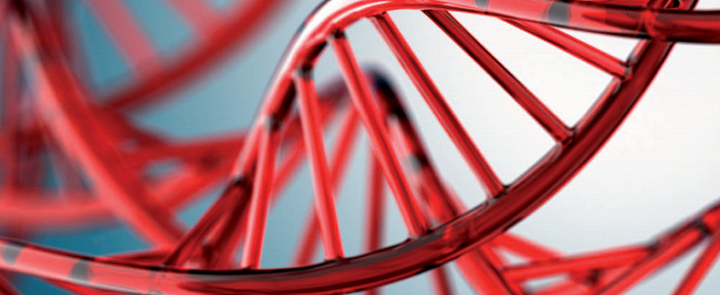Research
Research centres and experts across the region have published articles in Spanish, English and Portuguese on biosimilarity, regulation and pharmacovigilance.
This list of references is not exhaustive and will be updated regularly. Please contact us with any suitable, additional research which is not below.
General
Biosimilarity in Latin America
Chang Chiann, Leonardo de Souza Texeira, Fabiana Fernandes de Santana, Silvia Cardoso, Isabela da Costa César, Gerson Antônio Pianetti, “Biosimilarity in Latin America”, Generics and Biosimilars Initiative Journal (GaBI Journal). 2013;2(2):94-6.
Abstract: The introduction of new legislation in Latin America for the approval of biosimilar products follows implementation of EU legislation in 2005 for biosimilars approval. The establishment of regulatory processes for these complex drugs will ensure that evidence of safety and efficacy is obtained before the approval. Biosimars are high on the health-policy agenda because they are less costly and potentially more accessible, and also because the imminent expiration of a number of patents on biological products. Within individual Latin American Countries, the regulatory processes and stages of implementation vary.
Language: English
Information paper from the National Physicians Biologics Working Group, a project of the Alliance for Patient Access
Read the article: "Biologics: A Different Class Of Medications That Makes A Difference For Our Patients"
Languages: English and Spanish
Regulation
Regulation of biosimilars and their implementation in Latin America
Valderilio Feijó Azevedo, Eduardo Mysler, Alexis Aceituno Álvarez, Juana Hughes, Francisco Javier FloresMurrieta, Eva María Ruiz de Castilla, "Recommendations of the regulation of biosimilars and their implementation in Latin America" (and in Spanish), Generics and Biosimilars Initiative Journal (GaBI Journal). 2014;3(3): 143-8.
Abstract: With the emergence of biosimilars as a new class of biotherapeutic agents, the use of these products in Latin America has become a focus of attention. To aid policymakers and regulatory authorities, a group of experts on biosimilars developed a series of recommendations for the regulation of biosimilars and their implementation in the region (...). Countries in the region must enhance their efforts to improve pharmacovigilance, to include more training for regulatory staff, more public and professional awareness on the importance or reporting adverse events and better systems to capture and analyze data.
Languages : English and Spanish
Regulation and opportunities for patients with autoimmune diseases
Zayrho Desanvicente-Celis, Julian Caro-Moreno, Mateo Enciso-Zuluaga, Juan-Manuel Anaya, "Similar biotherapeutic products in Latin America. Regulation and opportunities for patients with autoimmune diseases", Dovepress, January 2013, Volume 2013:3, pages 1-17.
Abstract : Biotherapeutic products have revolutionized medicine, changing the way we can treat some chronic diseases, such as autoimmune diseases. The patent expiry and the high costs of reference biotherapeutic products, among other factors, have promoted interest in similar biotherapeutic products (SBPs), also known as biosimilars. The objective of developing an SBP is to manufacture a “highly similar” molecule to a reference biotherapeutic product, by conducting a comparability exercise that can demonstrate similar quality, safety, and efficacy. Regulations like those of the World Health Organization, the European Medicines Agency, and the Food and Drug Administration are international reference standards. Herein, we aim to point out the current status in Latin America on SBPs, focusing on regulatory issues within the context of autoimmune diseases. The regulations of Argentina, Peru, Chile, Guatemala, Panama and Costa Rica follow the World Health Organization guidelines. Other countries, such as Cuba, Mexico, Venezuela, and Brazil have regulations that take into account international standards combined with local features. In Colombia, a draft decree is under revision and the debate is ongoing. Some countries have already approved SBPs. Mexico, Chile, Ecuador, Bolivia, and Peru market SBPs of rituximab, and Colombia markets an SBP of etanercept. The advent of SBPs is definitely beneficial. Safety and efficacy must be ensured following clear and comprehensive regulations.
Language : English
Potential Regulatory and Commercial Environment for Biosimilars
Valderilio Feijo Azevedo, Erik Sandorff, Brian Siemak, Ronald J. Halbert, "Potential Regulatory and Commercial Environment for Biosimilars in Latin America", Value in Health Regional Issues, Volume 1, Issue 2, Pages 228-234.
Abstract: Biosimilars are increasingly attractive to payers around the globe because of mounting financial pressure. Many Latin American governments are developing abbreviated regulatory pathways for biosimilars. There are limited data regarding how certain regulatory agencies in the region plan to address biosimilar access. This study explores potential opportunities and challenges for biosimilar drugs in Brazil, Mexico, Argentina, Chile, and Venezuela.
Language: English
Brazil
Regulation of biosimilars
Denizar Viana Araujo, "Consideraciones regulatorias sobre productos biologicos en Brasil", Value in Health Regional Issues, Volume 1, Issue 2, Pages 254-256.
Abstract: Biosimilars are biologics developed to compete with originator biologics that have been on the market for a long time and lost their patent and market protection. The WHO guidelines on evaluation of Biosimilars provide clear guidance for regulators on how to develop and gain approval for these products. The aim of this paper is to inform of the current status of development in regulation of Biosimilars in Brazil according WHO Guidelines. The result of the comparison shows the Brazilian regulation conflicts with the principles of the WHO guidelines. Palabras Claves: cuestiones reglamentarias, productos biologicos, control de calidad.
Language : Spanish

